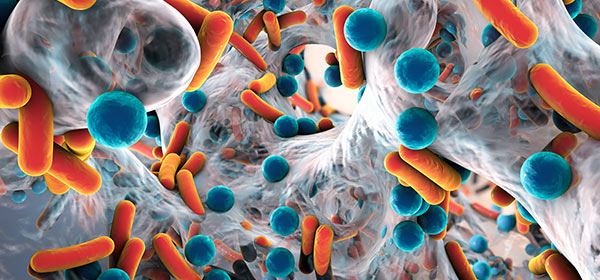Antibiotic resistant superbugs are one of the biggest problems facing the world today. Worldwide, millions become infected each year and about 700,000 people die from drug-resistant infections.
“It’s very serious and it gets worse all the time. We know already that there are people dying because they have drug resistant infections. And the way that many people are using antibiotics, it’s making things worse day by day,” said Professor Dame Sally Davies, Chief Medical Officer for England.
“And it’s not just a problem in the underdeveloped world, it’s happening in the developed world.”
In the UK, it is estimated that antibiotic resistant infections kill around 12,000 people each year, causing more deaths than breast cancer. In the US, some 23,000 people die each year as a direct result of these infections.
These numbers may be shocking, but what’s worse, is that they may not tell the complete story. Many health professionals are unaware of the nature of these infections, meaning people could die without the knowledge that the fatality was caused by one of these superbugs.
Infections occur mostly in the general community; however, most of the resulting fatalities occur in hospitals and nursing homes.
And these superbugs are not just killing people who fall ill from pneumonia, flu or e-coli related sickness. People receiving cancer treatment or operations such as hip replacements could also be affected. If anyone somehow contracts a drug resistant infection, they could die.
And the misuse of antibiotics is largely to blame.
People have been overusing antibiotics for decades because many health professionals over-prescribe them. In the UK, about one in four antibiotic treatments are actually necessary. Professor Davies suspects the problem is as bad in Australia as it is in the UK. And she’s right: Australia has one of the highest rates of antibiotic use in the world.
Overuse of antibiotics means that, over time, some bacteria develop a resistance to the drugs.
So, why is this situation becoming a crisis?
Governments worldwide haven’t been investing in basic science, and Big Pharma doesn’t put money into anything that won’t return a profit. To try and rally these groups to act, the World Health Organisation (WHO) is calling on all organisations to respond to these superbugs before they get out of hand. The UN has also set up a new inter-agency group to coordinate a response to the issue.
To address this global health crisis, a group of researchers and medical professional are gathering in Brisbane for the Solutions for Drug-Resistant Infections (SDRI 2017) conference this week, to find ways to resolve this problem.
But there is some promising research already under way. Australian scientists have discovered a protein called EptA, which causes multi-drug resistance by masking bacteria from both the human immune system and antibiotics. This discovery will help scientists create drugs that prevent superbugs hiding from medication.
In Canada, a team of scientists may have discovered a method for dealing with the overuse of antibiotics, by mixing antibiotics with maple syrup extract to improve the efficiency of the drugs. This process effectively reduces the volume of antibiotics required to treat infections by as much as 97 per cent in some cases.
Typically, new medicines take around 20 years from research to marketplace. Professor Davies says we need a solution sooner than that, as the WHO predicts that by 2050, the number of worldwide deaths caused by superbugs will rise to 10 million.
Were you aware of these superbugs? Do you feel that you are either overusing, or being over-prescribed, antibiotics?
Related articles:
Vegemite beats up on superbugs
Could infections cause dementia?
Do antibiotics and alcohol mix?

